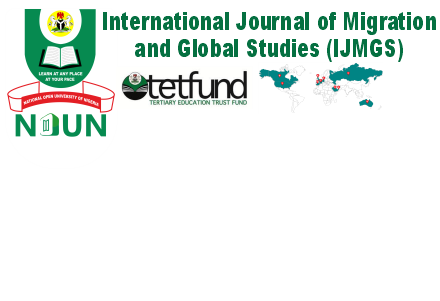The contemporary international system is witnessing increasing call for nationalism as against internationalism with great consequences for the human family. One of the fallout of the call is seen in the problems of migrants, asylum-seekers, refugees and internally displaced persons all over the world. Against these backdrops, this paper examines the implication migration of young Nigerians poses for the development of Nigeria in the light of sustainable development paradigm as part of the new roadmap for development model of the UN. Millennium and Sustainable Development Goals are the concrete manifestation of the UN development model. The SDGs are designed to protect the planet, terminate poverty and safeguard the people’s well-being. Hence, sustainable development paradigm has become the major template a wide range of policy makers, governance institutions and academics adopt as appropriate framework for mirroring developmental efforts. This is because most advocates and proponents of the sustainable development paradigm agree that the challenges threatening humanity in today’s world such as ozone layer depletion, water scarcity, vegetation loss, hunger, insecurity, climate change, poverty and deprivation can be tackled by strict adherence to the principles and tenets of sustainable development since the sustainable development goals are pillared on achieving a balance in terms of economic, social and environmental sustainability. Today the objectives of the development goals are yet to be realised. Therefore, many young Nigerians can no longer be patient. They believe leaving Nigeria for greener pasture is where solution lies for them and yet it is the young dynamic Nigerians that are to build the country of today and tomorrow.
